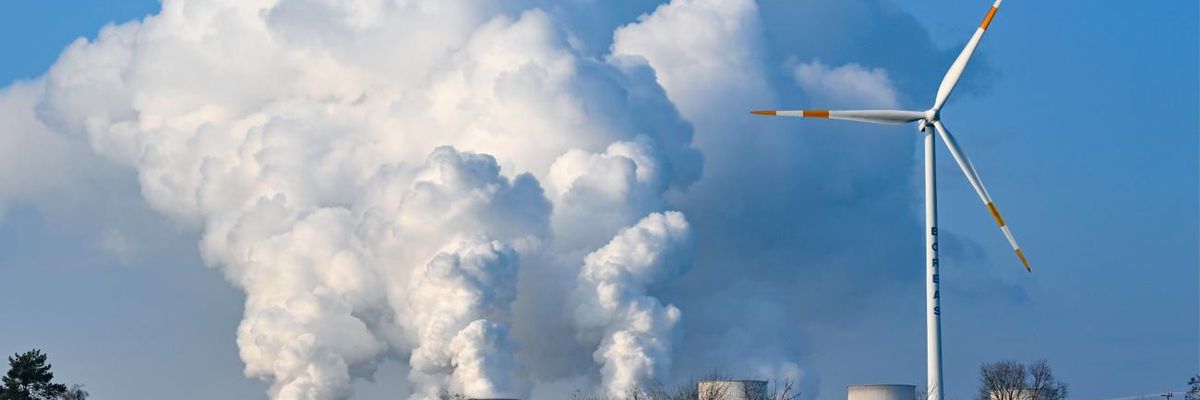The International Energy Agency warned Tuesday that the world is on track to almost completely reverse the 2020 pandemic-related drop in carbon emissions this year due to surging demand for fossil fuels, a finding that underscores the need for an urgent global phase-out of dirty energy to avert the worst impacts of the climate emergency.
"This is a dire warning that the economic recovery from the Covid crisis is currently anything but sustainable for our climate," Fatih Birol, executive director of the IEA, said in a statement. "Unless governments around the world move rapidly to start cutting emissions, we are likely to face an even worse situation in 2022."
"Unless governments around the world move rapidly to start cutting emissions, we are likely to face an even worse situation in 2022."
--Fatih Birol, International Energy Agency
The IEA's new report projects that energy-related CO2 emissions are on pace for their second-highest ever annual increase--just behind 2019--thanks in large part to booming demand for coal and other planet-warming fossil fuels, including natural gas.
In 2021, the report notes, "coal demand alone is projected to increase by 60% more than all renewables combined, underpinning a rise in emissions of almost 5%."
"This expected increase would reverse 80% of the drop in 2020, with emissions ending up just 1.2% (or 400 Mt) below 2019 emissions levels," the report finds.
One bright spot in an otherwise alarming report is its finding that renewable energy sources "are set to provide more than half of the increase in global electricity supply in 2021." The IEA analysis projects that China is likely to account for nearly half the global increase in renewable electricity generation in 2021, followed by the United States, the European Union, and India.
"Renewables remain the success story of the Covid-19 era," the new report notes. "Demand for renewables grew by 3% in 2020 and is set to increase across all key sectors--power, heating, industry, and transport--in 2021. The power sector leads the way, with its demand for renewables on course to expand by more than 8%... the largest year-on-year growth on record in absolute terms."
The IEA report comes just days before U.S. President Joe Biden is set to host a virtual summit of 40 world leaders on Thursday to discuss steps to bring global carbon emission targets into alignment with the goals of the 2015 Paris climate accord.
Ahead of the Thursday summit, Biden--who has pledged to put the U.S. on a path to net-zero emissions by 2050--is expected to unveil a new commitment to significantly reduce national greenhouse gas emissions this decade.
Foreign Policyreported last week that the Biden administration is "mulling the possibility of sharply increasing the commitment made by former President Barack Obama, who pledged to cut emissions 26 to 28 percent from 2005 levels by 2025."
"The Leaders Summit on Climate hosted by U.S. President Joe Biden this week is a critical moment to commit to clear and immediate action ahead of COP26 in Glasgow," Birol said Tuesday.

